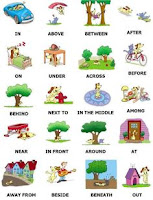The Little Prince, by Antoine de Saint-Exupery.
Dear students, read the following letters, try to find the meaning of the words you don't know. Think about the verbs, present and past verbs. I have found the meaning of some of them for you, but if you need it, you can use the "translator" that you will find on the right side of this page. Think that next year, you will be at "Secondary Studies", close to fly very far away, to your beautiful future.
When you feel ready, watch the video bellow..
Take care,
love,
Teacher Irene.
"A pilot, stranded in the desert, meets a little boy who is a prince on a planet".
Based on the story by Antoine de Saint-Exupery, this magical musical fable begins as a pilot makes a forced landing on the barren Sahara Desert. He is befriended by a "little" prince from the planet Asteroid B-612.
The main theme of The Little Prince is the importance of looking beneath the surface to find the real truth and meaning of a thing. It is the fox who teaches the Prince to see with one's heart instead of just with one's eyes. Unfortunately, most adults have difficulty doing this.
The story follows a young prince who visits various planets in space, including Earth, and addresses themes of loneliness, friendship, love, and loss. Despite its style as a children's book, The Little Prince makes poignant observations about life and human nature.
-"It is only in the heart that one can see rightly, what is essential, is invisible to the eye." -
"The Little Prince", by Antoine de Saint-Exupery, is about passion and care. We can only understand the true meaning of someone if we use our feelings. Love, passion, and care cannot be seen and we only feel it.
VOCABULARY BOX
"Regular & Irregular Verbs"
1. Based: verbo regular- pasado: "Basar"/ "Basado"
2. Begins: verbo irregular presente: "Empezar"
3. Forced: verbo regular: "Forzar/Forzado"
4. Is: verbo irregular presente: "Ser/Estar "
5. Looking: verbo regular, gerundio: "Mirando"
6. Find: verbo regular presente: "Encontrar"
7. Teaches: verbo irregular presente, tercera persona singular: "Enseña"
8. See: verbo irregular presente: "Ver"
9. Have: verbo irregular, tercera persona del plural, presente: "Tienen"
10. Do: verbo irregular, gerundio (..ing), "Haciendo"
11. Follow: Verbo regular, tercera persona del singular: "Sigue"
12. Be seen: "Ser visto"
12. Be seen: "Ser visto"


Comentarios
Publicar un comentario
Por favor, deja aquí tu mensaje.